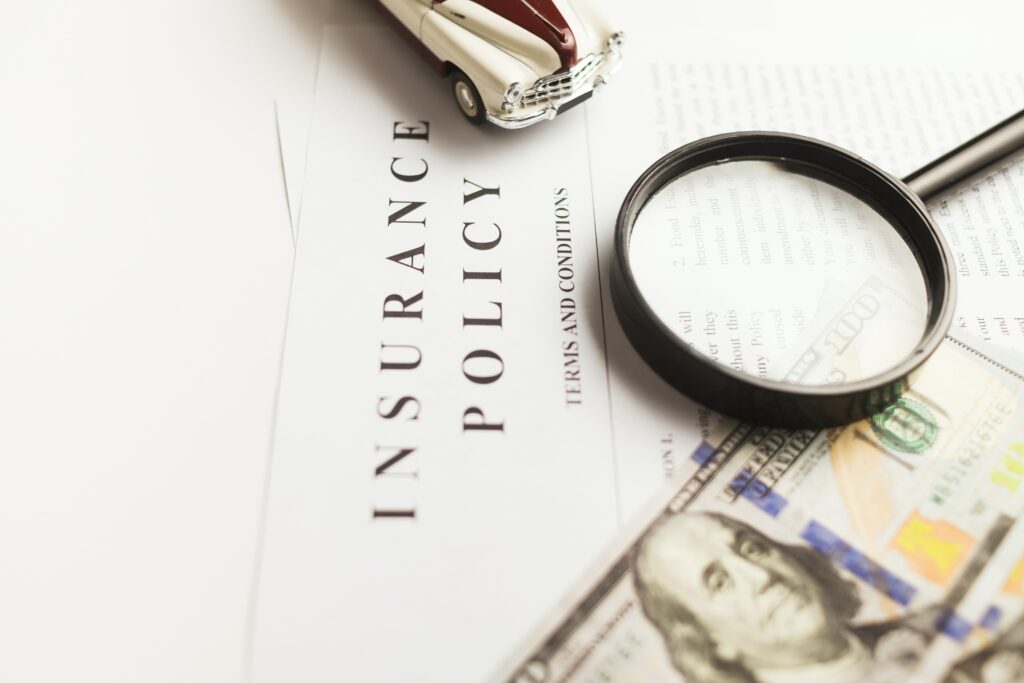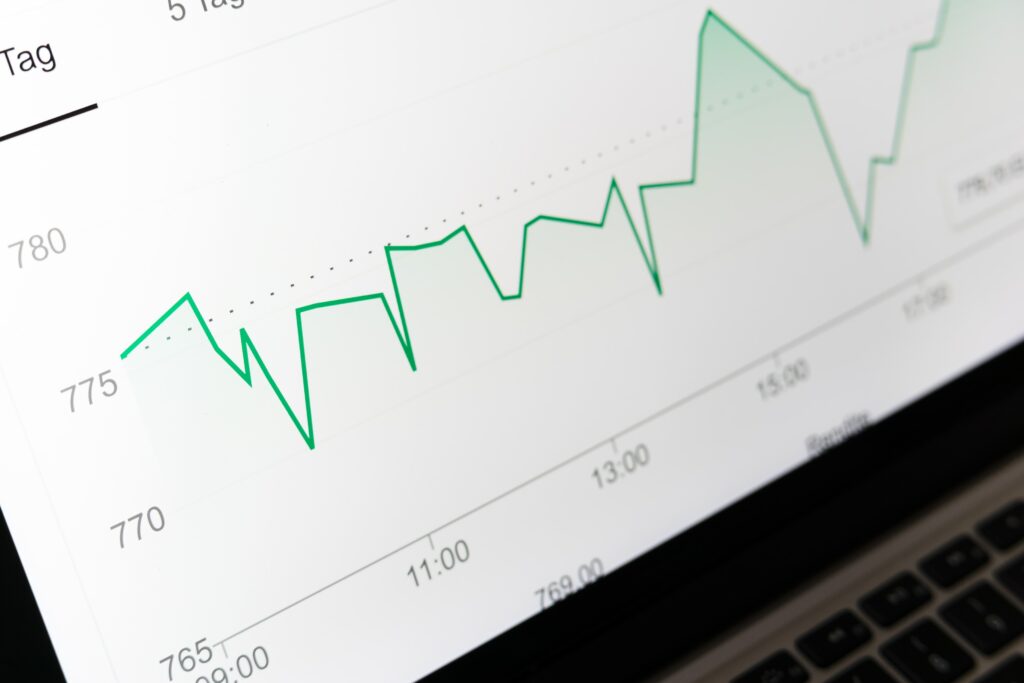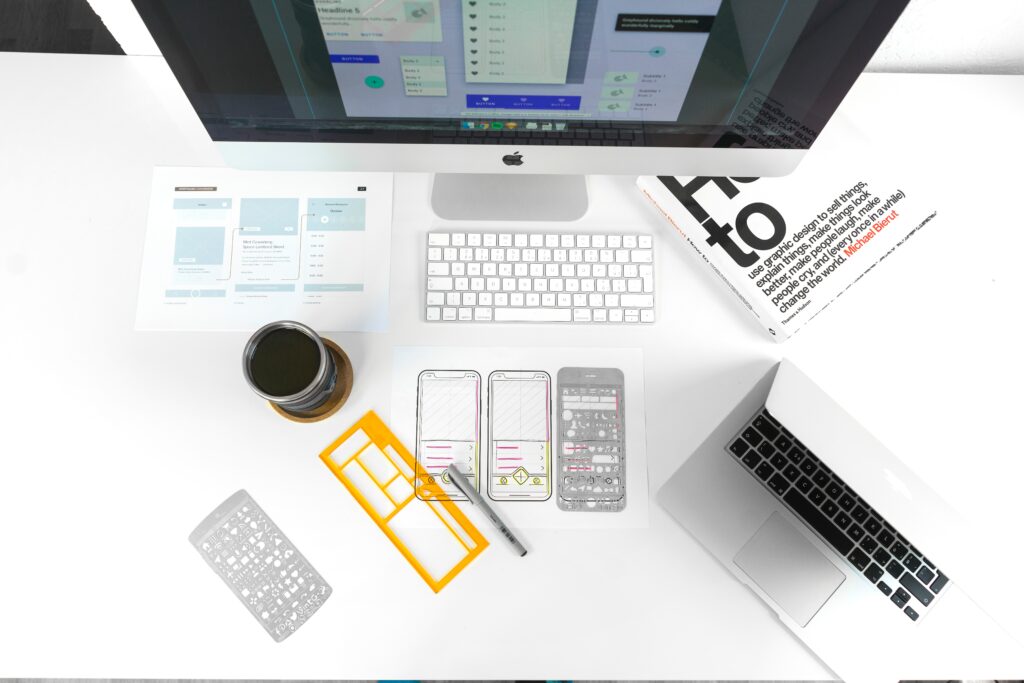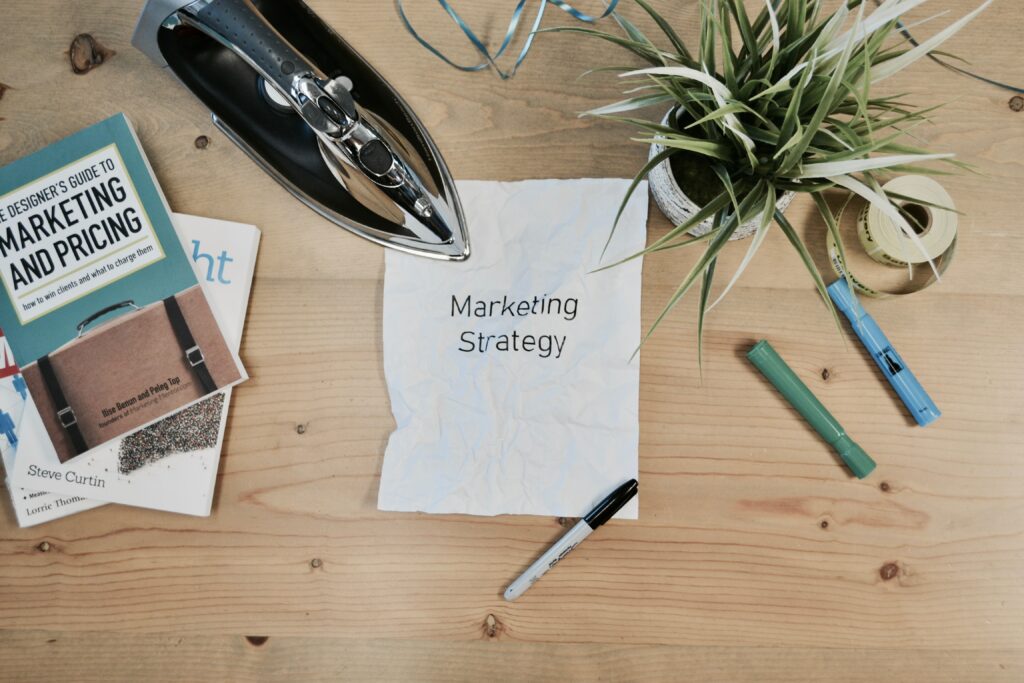To Buy or Not to Buy: Deciding Whether to Get Commercial Insurance
The world of insurance is a complex and confusing one.
You’ve probably already got quite a few personal insurance policies whether it be life insurance, home insurance, car insurance, or any other of the multitude of insurance policies out there.
Having multiple insurance policies for different aspects of your life may give you a sense of comfort and security, knowing that you’ve protected yourself and your belongings as much as you possibly can.
If you’re hoping your business assets are covered under one of your current policies though, you’re likely going to be disappointed.
Your growing business will need its own form of protection – just like any other of your possessions. This is where commercial insurance comes in.
It’s not quite as simple as that though as there are different types of commercial insurance, and it’s important to find a policy that best suits your business needs.
In this article, we take a deep look into the world of commercial insurance. After reading through all of the information, you should be in a much better position to decide whether you need to get commercial insurance for your business.
What Is Commercial Insurance?
Before deciding if you need commercial insurance, you’ll need at least a basic understanding of what it actually is.
Like all insurance policies, commercial insurance is a way of protecting your business from future issues that could have a negative impact on it. Things like theft of stock and equipment repair might be part of your commercial insurance policy, for example.
In very basic terms, commercial insurance minimizes the risks your business faces.
You could think about commercial insurance as a way of looking after the professional part of your life, while your personal policies protect your family life. Looking at it in this way is useful, as your personal policies are unlikely to cover anything relating to your business. Your work and private life are two separate entities and so need to be insured separately too.
Who Needs Commercial Insurance?
Paying for an extra insurance policy when you don’t need it is something most of us try to avoid. Some of the policies we pay for, we never actually use so they can sometimes seem like a waste of money.
That doesn’t mean they aren’t important though. If we take home insurance as a good example. Whether you pay for your home insurance annually or monthly, the chances are, it’s a fairly noticeable financial commitment.
You might go for years without ever needing to claim, so the hundreds of dollars you’ve put into the policy frustrates you to the point of wanting to cancel. However, if you were the unfortunate victim of a robbery and several expensive items were taken from your home, your home insurance would cover the cost of replacing them.
Replacing the expensive items would’ve cost you a large sum of money had it not been for your insurance company footing the bill. All of a sudden, your home insurance seems like a very worthwhile investment.
The same thing applies to commercial insurance. If your business has assets and generates revenue, then insuring it might be a good idea.
If you are making a profit from your business, even a small one, then it could be time to think about getting insurance. While looking at the finances of your business is a good starting point for deciding whether you need commercial insurance or not, there are other things to think about as well.
Could you afford to replace your inventory and work equipment?
This is an important question to ask yourself as commercial insurance isn’t something you necessarily have to get. If you hold minimal stock and run your business from one laptop, then maybe you could comfortably afford to replace it if something went wrong.
However, if your business has a good amount of stock and equipment, then paying to replace some or all of it might be unaffordable. If this is the case, commercial insurance might be your best option.
Are you going to be working with third parties who require you to have it?
If you get to this stage, then you don’t really have much choice when it comes to commercial insurance. Working with other businesses like retailers, warehouses, and fulfillment centers will mean you have to agree to certain stipulations they set out. If one of the conditions of your contract is to have commercial insurance, then you will either need to get it, or sacrifice your relationship with the third party.
Ultimately, it will be your choice whether you get commercial insurance or not but your financial situation and your business goals will certainly guide your decision.
What Types Of Commercial Insurance Are There?
There are actually quite a few different types of commercial insurance that you can buy. Knowing which one is best suited to your business needs will make sure you aren’t paying for a more complex policy than you need.
Liability Insurance
Liability insurance is one of the most commonly held commercial insurance policies. It protects you and your business if anyone gets injured through interacting with your products or business in some way.
It can be easy to fall into the trap of thinking your products could never cause an injury. You might also think that as you’re an online-only business, no one actually visits your premises so there could never be an accident there.
While this does seem like a logical way of thinking, without liability insurance, you might be surprised how vulnerable your business actually is.
Let’s say that you sell a product that you consider to be completely harmless. A cuddly toy designed for children would be a good example. You may not see the point of liability insurance until someone who comes into contact with the toy has an allergic reaction to one of the materials used in its manufacture.
Even though a case like this may not ever come to anything more than an inconvenience, there could still be legal fees involved. These fees can very quickly reach unaffordable levels but if you have liability insurance, you won’t have to find the money yourself as your insurance will cover it.
Even couriers delivering stock to your business address could injure themselves and hold you responsible. If you run your business from home, it’s unlikely any of your personal policies will help in this situation as they don’t commonly cover business matters. Commercial liability insurance would likely be able to help though.
Property Insurance
Property insurance covers the physical things your business owns.
This includes stock, computers, desks, and anything else that is solely used for business purposes.
It’s important to understand that property insurance covers more than just inventory, as otherwise, it might not seem like a worthwhile investment. When you add up the amount of money it would cost to replace all of your business property though, it becomes much more appealing.
If you run your business from home and you have a personal insurance policy to cover your home and its contents, this is unlikely to cover business property. This would leave you vulnerable if something bad happened to your home. If you were ever unlucky enough to have a housefire that caused significant damage, you would need to make sure all of your property is covered and can be replaced.
Trying to claim for business property through a personal policy will almost certainly be unsuccessful and you could be left with a hefty bill to replace all that was lost or damaged.
For small businesses, it’s this type of event that can lead to financial ruin and closure.
Property insurance can be a great way of protecting your business from lost or damaged equipment. These policies will cover the cost to repair or replace your business property so you can keep things running smoothly with no additional costs to take on.
Transit Insurance
Running an e-commerce business usually means shipping items to customers by using a courier.
The time your products spend with the courier after leaving your business and before arriving with the customer can be risky.
While your products are at your business address, they are covered by your property insurance. Once they arrive at the customer’s address, the customer takes responsibility for the protection of the product and you don’t need to worry about it anymore.
During transit though, it can be a complex situation if your products get damaged as a result of an accident or unforeseen events.
Couriers will have their own insurance that covers certain damages, lost packages, and alike, but when something happens that wasn’t their fault, it’s much harder to get any money for the loss of your items.
Usually, if you are working with a third party like a courier or a fulfillment center, it will be stated in the contract that you should have your own insurance to cover any loss or damage.
Transit insurance isn’t needed for all e-commerce businesses. It would be best suited to businesses that ship in bulk on a regular basis. You can imagine how devastating it would be to a small business shipping hundreds or thousands of dollars worth of stock, if that stock were to be destroyed in transit.
If your business only ships small items in small quantities, then you might consider transit insurance to be unnecessary. The more you ship though, the more risk is involved and insurance like this might be much more important to you.
Business Income Insurance
For small businesses, business income insurance can be the difference between closure and staying operational.
In simple terms, business income insurance protects your business’s income if it has to stop operations unexpectedly. If the place you’re running your business from becomes unusable for a while, then your expected income can be covered by your insurance. Even if you run your business from home, weather damage, fires, and other similar events can make your home unsafe meaning your business would have to pause operations.
With no income being generated by your business, any business expenses could quickly become unmanageable. Having insurance to cover this greatly increases the chance of your business being able to bounce back when things can start working again.
It’s worth bearing in mind that business income insurance only covers business-related expenses and not any personal bills.
Data Breach Insurance
When running an e-commerce business, you could have a large amount of data stored within your systems.
The modern world is highly reliant on technology so hackers have been implementing more and more cyberattacks on businesses and individuals over recent years.
Cyberattacks have now become enough of a risk for insurance companies to start offering data breach insurance. This protects your business from the financial impact a data breach could cause.
A data breach could result in your business bank and financial details being stolen leaving your finances in a bad way. If this was to happen, data breach insurance can cover the cost of any losses.
Another way data breach insurance could be useful for you, is if hackers were to attack your business and steal the data you have stored relating to customers, suppliers, and anyone else you have in your systems. If any of these bought claims against you, your insurance could cover any legal fees or payouts.
This type of commercial insurance is not for everyone. Cyberattacks are usually aimed at large businesses but small businesses can be seen as easy targets so it’s something to keep in mind.
As your business grows, data breach insurance will become much more relevant and important to you.
Other Types Of Commercial Insurance
There are other types of commercial insurance that may or may not be relevant to your business.
New insurance types such as seller suspension insurance seems to be a good fit for e-commerce businesses. It basically provides cover if your store gets suspended for some reason.
This is not always necessary as you may not be using an e-commerce platform where suspension is a risk, but if you are, seller suspension insurance could be of use if you are worried.
Chargeback insurance is another type of commercial insurance that can prove useful for small businesses that allow customers to pay using credit cards.
If payments made on a credit card are actually fraudulent and a result of stolen details, the credit card company can try to get the payment back. If this happens there could be some costs that fall on you so this type of insurance is very useful in this situation.
How Much Does Commercial Insurance Cost?
The cost of commercial insurance will be dependent on multiple factors so it’s unlikely you will be able to find an “off the shelf” package that suits your business needs.
Liability insurance prices are usually worked out based on sales and the products your business sells. If you have relatively low sales numbers, your liability insurance will likely be cheaper. The same is also true if you have sold low-value products as the cost to the insurer to replace lost or damaged items will be small.
The type of product being sold by your business also gets taken into account and a risk factor will be given. For example, children’s toys will have a much lower risk value than fireworks.
Property insurance costs will be based on the value of your business assets. The higher the value, the more expensive your policy will be.
This does make sense though. If you have to claim on your property insurance as multiple assets have been stolen, your insurer will have to pay out more money to replace more expensive items.
If you run your entire business from a laptop and only have a few hundred dollars worth of stock, it won’t cost the insurers a huge amount of money to replace your assets if you need to claim, so the policy will cost less.
The price of all the commercial insurance policies you can get will generally be based on the amount of risk each one holds.
Insurers need to make sure they are making enough money to be able to pay out to their customers when needed, while also offering competitive pricing. If they think your business has the potential to cost them a lot of money in payouts, they will need more money from you to insure it.
How To Buy Commercial Insurance
If you’ve made the decision that commercial insurance is something you want to get, then you need to think about where you are going to buy it.
While you can buy online, it’s probably a much better idea to go through a reputable insurance broker as they may be able to get you the best deal.
It might seem like extra work to spend time researching insurance brokers (particularly after researching commercial insurance), but doing your research can save you money, time, and effort, in the long run.
Your research doesn’t have to be based on Google searches and reading through loads of insurance broker websites. Instead, you could speak to other business owners to see if they have a broker they would recommend.
This is actually a great way of finding the best broker for you. If you speak to people who own businesses very similar to yours, you will be more confident that their advice and recommendations are relevant to your business.
Don’t base your final decision purely based on these recommendations though. You’ll still need to do some additional research, but simply talking to other business owners is an easy way to get started with finding a broker.
Another consideration when looking for a broker is thinking about those who specialize in commercial insurance.
There are a lot of insurance brokers out there who could probably help you find the commercial insurance you want. Brokers who specialize in commercial insurance though will be better placed to offer advice and guidance for your specific needs.
You might already have a good relationship with an insurance broker who helps you out with all of your personal policies. While this is a good position to be in, it might not be the most helpful for your business insurance. Working with a broker who understands the demands of running businesses like yours, understanding the risks you face, and how to insure against them will make buying commercial insurance much easier.
You should also try to speak with any potential insurance brokers before deciding which one to work with.
This will give you the opportunity to get to know their level of understanding relating to your business. It also allows you to ask them questions about the number of insurers they work with, whether they’ve worked with e-commerce businesses before, and any other specific questions relating to what you need from your insurance.
Minimize The Risks Your Business Faces
There are risks associated with running any business. Financial risks are probably one of the scariest risks so minimizing them can make you feel more confident in your operations.
Minimizing financial risks by spending money sounds quite counterproductive but it does make sense in the long term.
Commercial insurance isn’t always necessary so you might be putting off getting it as you don’t want to add another expense to your business. This seems logical but it can also lead to much bigger problems.
Saving money by not getting insurance will certainly save you money short term. All it takes though is for something to go wrong and your business could end up in a bad way.
That still doesn’t mean you have to get some kind of commercial insurance. It simply means that you should look at the risks your business is facing (both now and in the future), and then make a decision as to whether commercial insurance can reduce these risks.
When looking at commercial insurance, it also gives you the opportunity to take a closer look at your business. When you’re speaking with brokers and doing your own research, there will be questions asked about your business that can show it in a new light.
Having to think about your current business model, your current financial situation, stock levels, and future plans can all have a big impact on how you run your business.
It’s also common for risks that you hadn’t previously thought about to present themselves to you during this process. This can be a very positive outcome as you can move forward in your business, more prepared than you were before.
Ultimately, it’s your decision whether you feel commercial insurance is right for your business right now. Maybe the risks you face just aren’t big enough to justify an extra cost.
You know your business better than anyone else and only you can decide how much risk you are willing to place on it.













